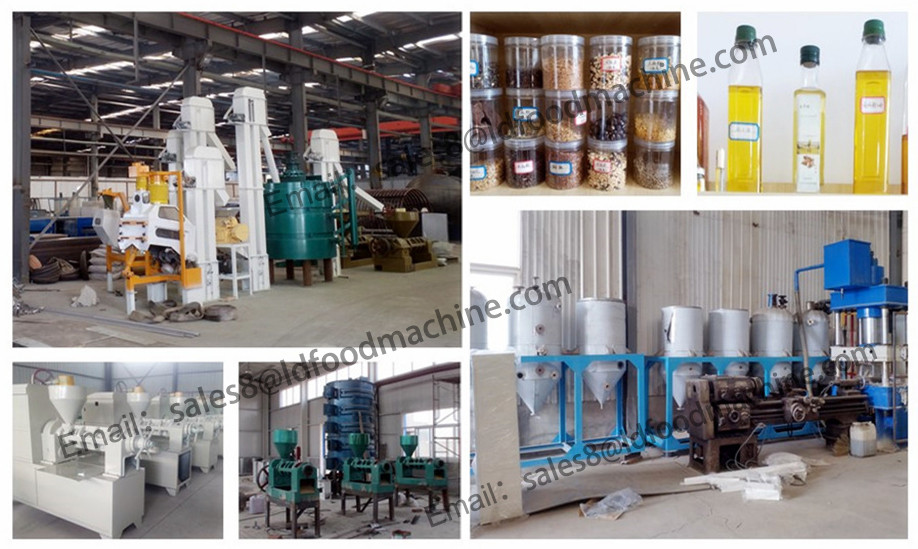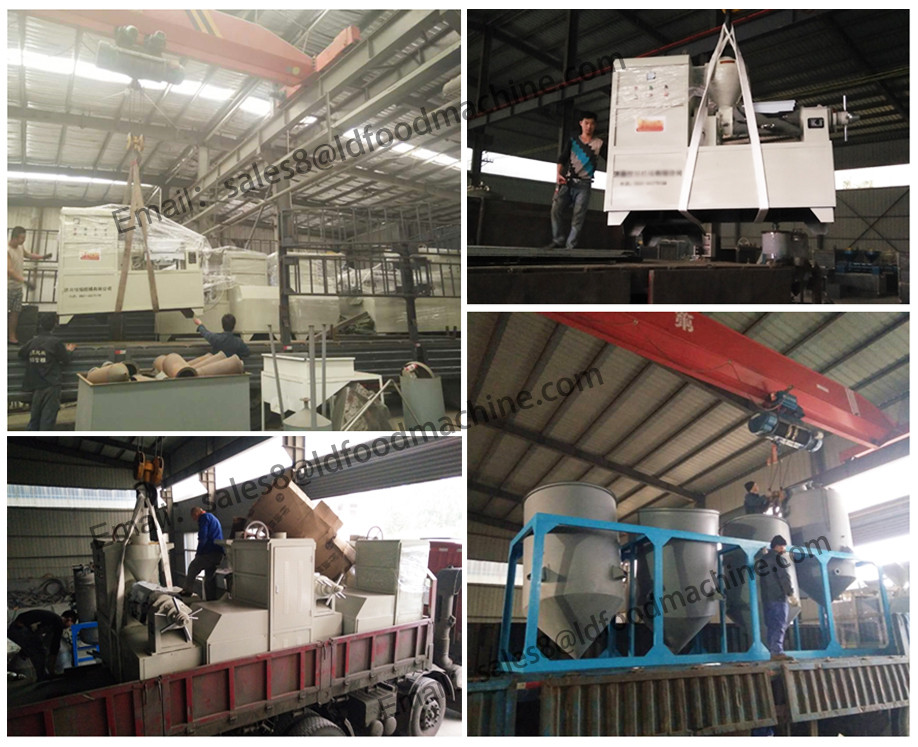Sesame Oil Processing Plant
The whole sesame oil processing plant contains three workshops: sesame pretreatment workshop, sesame oil extraction workshop and sesame oil refining workshop.
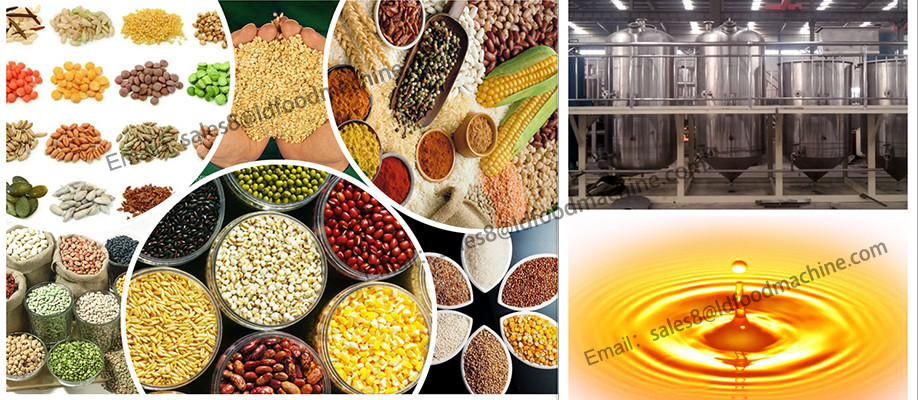
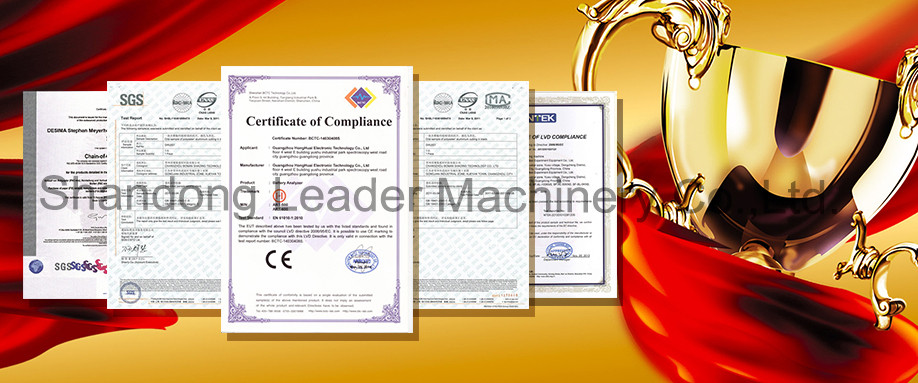
1. Craft flow for sesame oil pretreatment workshop
sesame seed â magnetic box â cleaning â cooker â oil press â oil filter â to extraction workshop
Main Equipments:
1. Sesame seed: Itâs a popular oil seed for human, because of the good smell of the sesame oil. The oil content of sesame is about 50%. Usually the oil press way is used to extract sesame oil.
2. Magnetic box: Clearing the iron impurity which migLD be in the mustard seed. The iron impurity will be harmful to the following machines, so we need take the iron impurities out.
3. Cleaning: This parts have different size cleaning sieves to clean the different impurities. After going through this part, most of the impurities are moved from mustard seed.
4. Cooker: This machine can adjust the water content of the mustard seed. Itâs also good for the press and oil extraction section.
5. Press: The press machine is used to take parts or all of the oil in the mustard seed. We will design the suitable machine according to your requirement.
6. Oil filter: After getting sesame oil, the filter is used to move the impurities in the oil.
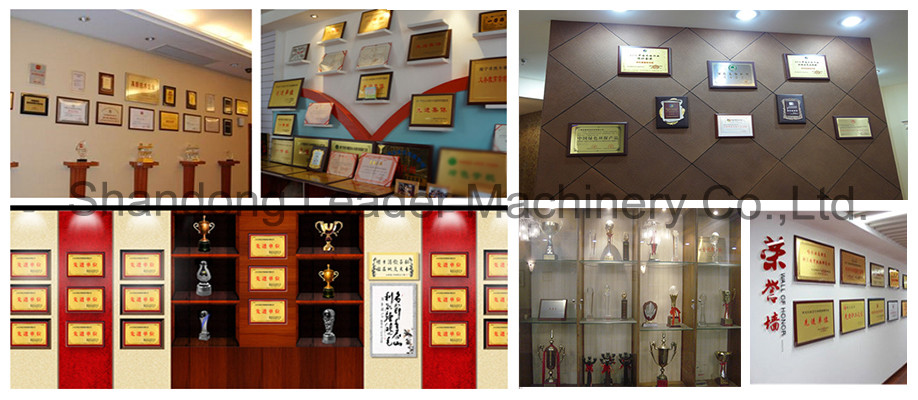
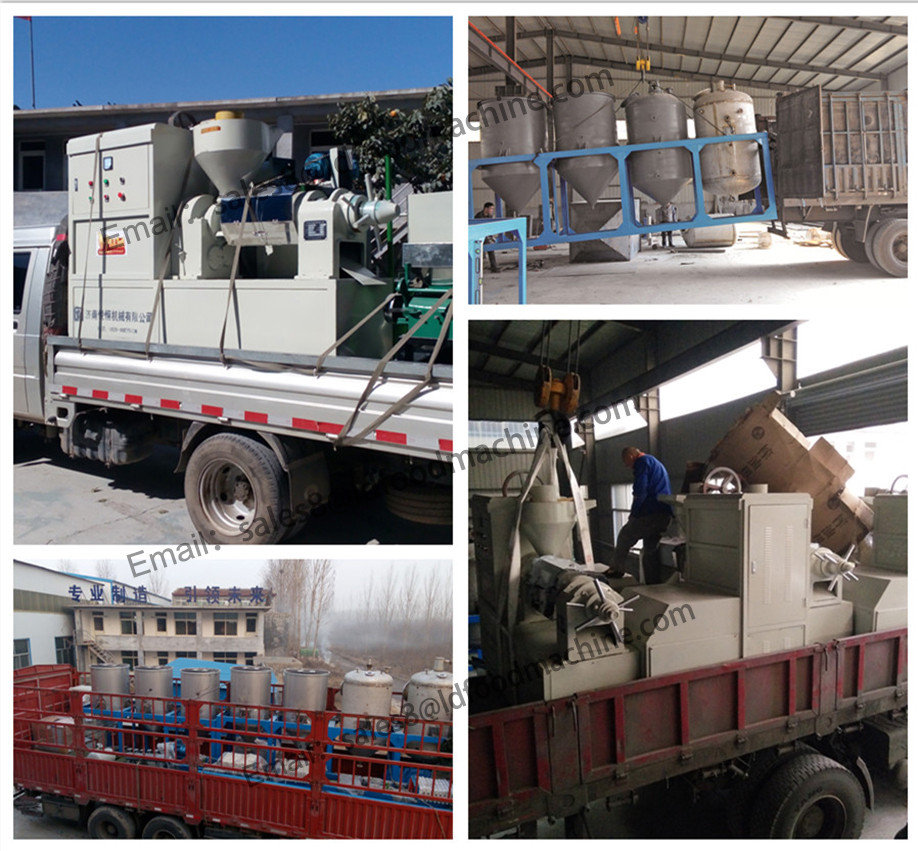
2.Craft flow for sesame oil extraction workshop
solvent
â
extractor â mixed oil â 1st and 2nd evaporation â stripping tower â crude sesame oil
Wet meal â DTDC toaster â sesame cake
Main Equipments:
1. Solvent pumps: continuously spray solvent to the rotary-typr extractor.
2. Roary extractor: spray and soak the sesame cake with solvent so that oil fats can be dissolved in solvent (form miscella). After processing, you can get wet meal and miscella (mixed oil).
3. DTDC: used to separate the solvent from the wet meal.
4. Miscella tank 1st: pump the miscella ( oil with solvent) into the miscella 1st, then add 10% saline water to it. The phospholipid and impurities in the miscella will react with the saline water, at last the reactant precipitate, reaching the goal of purifying.
5. Miscella tank 2nd: the purified miscella will be pumped into it.
6. Miscella stripping: it will remove the remaining solvent in miscella. And the solvent will be discharged to condenser for recycling.
7. Condensers: used to cooling the solvent gas separated from the wet meal and miscella for recycling.
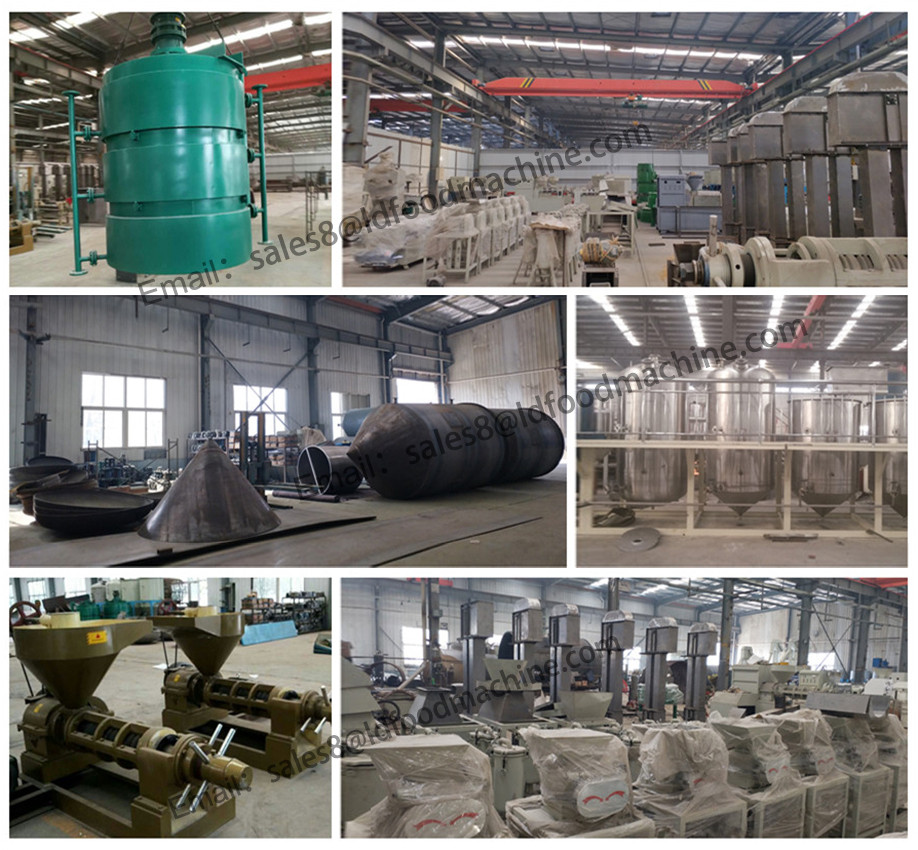
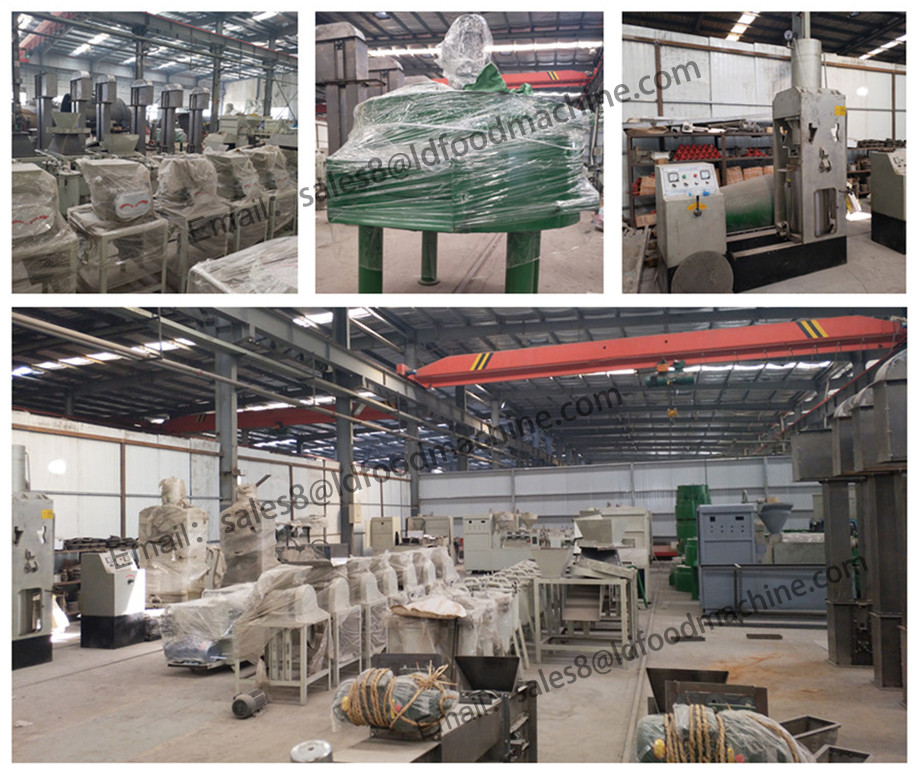
3. Craft flow for sesame oil refining workshop
Crude sesame oil â degumming and deacidificationâ decolorization âdeodorization â refined sesame oil.
Main Process:
1. Degumming and deacidification: The gumming is moved by phosphoric acid and hot water. There are two ways to move the acid in the sesame oil. One is chemical way, the other one is physical way. The chemical way is using NaOH to react with acid. This way is suitable for the capacity of 5-30T per day. The physical way is using steam and centrifugal to move the acid. This way is used for capacity from 30-2000T per day.
2. Decolorization: This step is used to adjust the color of the oil. You can control the color of the sesame oil according to the requirement of your market.
3. Deodorization: The function of this step is to move the special smell in the oil. This is an important standard for refined sesame oil.
the specification of crude sesame oil
Item |
Standard |
Smell and taste |
The original smell and taste of sesame oil |
Moisture and volatile matter (%) ⤠|
0.20 |
Insoluble impurities (%) ⤠|
0.20 |
Acid value (mgKOH/g) ⤠|
4.0 |
Peroxide value (mmol/kg) ⤠|
7.5 |
the specification of refined sesame oil
Item |
Standard |
Color (Lovibond Cell 133.4mm) ⤠|
R2.0 Y20 |
Smell and taste ⤠|
No smell and good taste |
Transparence ⤠|
Clear and transparent |
Moisture and volatile matter (%) ⤠|
0.05 |
Insoluble impurities (%) ⤠|
0.05 |
Acid value (mgKOH/g) ⤠|
0.20 |
Peroxide value (mmol/kg) ⤠|
5.0 |
Smoke point (°C) ⥠|
215 |
